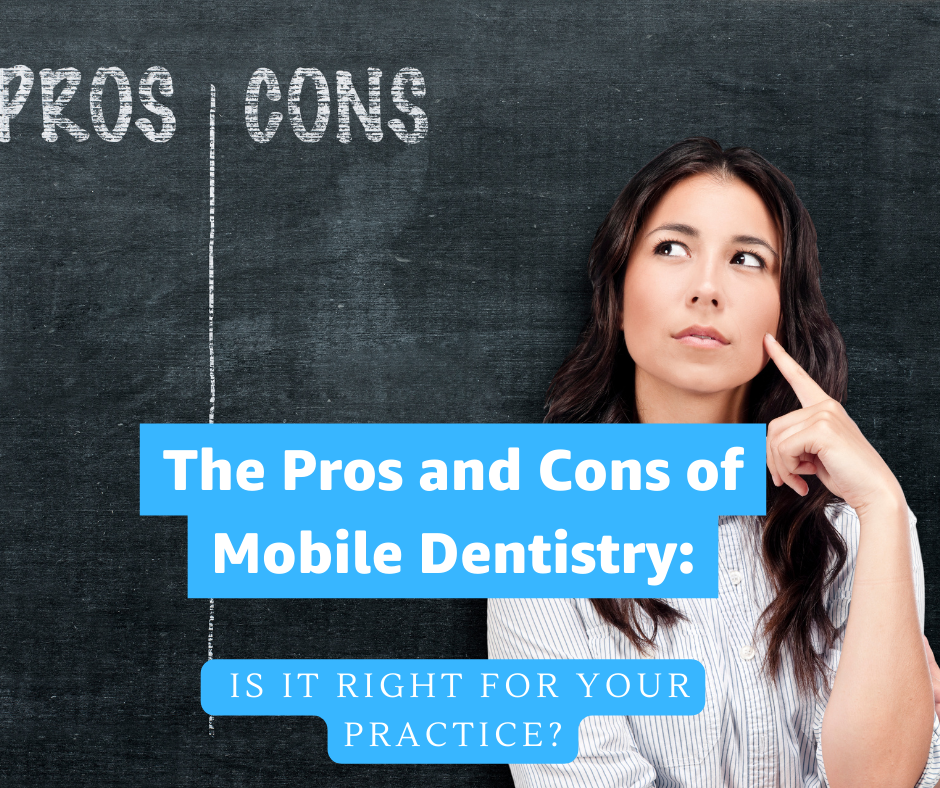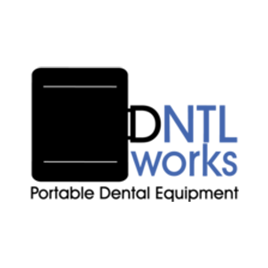
The Pros and Cons of Mobile Dentistry: Is it Right for Your Practice?
Share
Mobile dentistry has become an increasingly popular option for dentists who are looking to expand their reach and offer their services to a wider range of patients. But as with any new endeavor, there are pros and cons to consider before taking the plunge into mobile dentistry. In this blog post, we'll explore some of the advantages and disadvantages of mobile dentistry and help you decide if it's the right choice for your practice.
Pros of Mobile Dentistry
-
Increased Access to Care One of the biggest advantages of mobile dentistry is the increased access to care that it provides. By taking your services on the road, you can bring quality dental care to patients who may have difficulty accessing traditional dental offices. This is particularly important for patients in rural areas or for those who have limited mobility or transportation options.
-
Flexibility and Convenience Mobile dentistry offers a high degree of flexibility and convenience for both dentists and patients. You can set your own schedule, choose which patients to see, and work in a variety of locations. For patients, mobile dentistry offers the convenience of receiving dental care in their own homes, workplaces, or schools.
-
Cost-Effective Mobile dentistry can be a cost-effective option for both dentists and patients. Without the overhead costs associated with maintaining a traditional dental office, you can offer your services at a lower cost. Additionally, patients may save money on transportation costs and time away from work or school.
-
Higher Revenue Potential By expanding your reach and offering your services to a wider range of patients, you have the potential to increase your revenue. Mobile dentistry can also provide opportunities for partnerships with other healthcare providers, such as hospitals or community health centers.
Cons of Mobile Dentistry
-
Limited Equipment and Resources Mobile dentistry requires a different set of equipment and resources than traditional dental offices. While portable dental units and supplies have come a long way in recent years, they may not have the same capabilities as traditional dental equipment. This can limit the types of procedures you can perform and may require additional planning and preparation.
-
Regulatory and Legal Considerations Mobile dentistry is subject to a variety of regulatory and legal considerations, such as licensing requirements and insurance coverage. These requirements can vary by state and may require additional paperwork and fees. It's important to do your research and ensure that you are in compliance with all applicable laws and regulations.
-
Safety Concerns Mobile dentistry can present unique safety concerns for both dentists and patients. Without the controlled environment of a traditional dental office, there is an increased risk of exposure to infectious diseases and other hazards. It's important to take precautions to ensure the safety of both yourself and your patients.
-
Challenges with Patient Management Mobile dentistry can present challenges with patient management, such as scheduling and record-keeping. Without the infrastructure of a traditional dental office, it may be more difficult to manage patient appointments and maintain accurate records.
Is Mobile Dentistry Right for Your Practice?
Ultimately, the decision to pursue mobile dentistry depends on a variety of factors, including your personal and professional goals, your patient base, and your resources. Here are some questions to consider when deciding if mobile dentistry is right for your practice:
- What are your goals for expanding your practice?
- What types of procedures do you plan to offer?
- Do you have the necessary equipment and resources to provide quality dental care on the go?
- Are you willing to take on the additional regulatory and legal considerations that come with mobile dentistry?
- Do you have a patient base that would benefit from mobile dentistry services?
- Are you comfortable with the safety concerns and challenges associated with mobile dentistry?
Conclusion
Mobile dentistry can be a great option for dental professionals who want to expand their practice and reach new patients. By bringing dental care directly to patients, mobile dentists can provide a valuable service to underserved communities and populations. However, it's important to carefully consider the pros and cons of mobile dentistry before making a decision.
If you're considering mobile dentistry, be sure to do your research and talk to other mobile dentists to learn more about the challenges and opportunities of this practice model. By carefully weighing the pros and cons and taking the necessary steps to set up your practice, you can build a successful mobile dental practice that serves the needs of your patients and your community.
